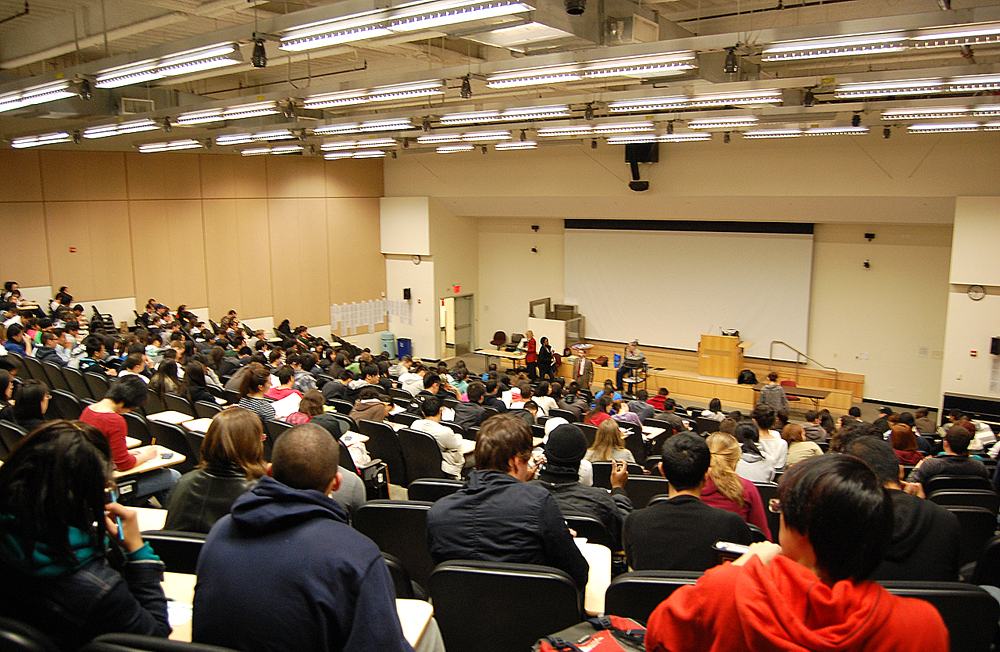OPINION: Higher education must be reformed

Adult IQ levels in the U.S. have been consistently declining since the 90s, according to Northwestern University research released in an article for the May-June 2023 issue of Intelligence Journal.
Florida has a college or higher education graduation rate of only 30.5% this year, according to research by World Population Review. These results demonstrate an ineffective education system and necessitate immediate action by Florida and national universities alike.
Additionally, cognitive development and critical thinking skills are lacking in most U.S. college graduates, as reflected by 2021 research in The American Journal of Economics and Sociology.
American higher education must be reformed by the implementation of new methods of teaching, like the T-method. Rapid societal change and current teaching methods threaten modern society and the future of the nation.
Still, 55% of U.S. college courses are taught through lecture instruction, leaving little room for multidisciplinary exploration, according to findings by the University of Nebraska in 2018.
Education shapes new generations, meaning that it has vast effects on American, and even global civilization. Educators, administrators and students must be made aware of the possibility of education reform and included in a seamless transition to innovative teaching methods. USF has the responsibility to promote the development of new methods of education and universities not currently using these methods would improve their teaching by implementing them.
College education has emerged to encourage specialized learning and it has become much more accessible to the general public, yet it has not evolved with changes in society.
“We are in the midst of a profound social and economic transformation that has been catalyzed by breathtaking advances in automation and artificial intelligence, and unprecedented access to data and computation,” said Carnegie Mellon University President Farnam Jahanian at the 2020 World Economic Forum Annual Meeting.
Jahanian also posed a solution, a way that higher education can adapt, known as the T-method. This is a system that teaches vertically to produce “deep disciplinary expertise,” but also teaches horizontally to promote interdisciplinary learning and work. In other words, this teaching method focuses on promoting learning that specializes in one discipline while also incorporating relevant information and skills that reach across other fields of study.
Interdisciplinary inquiry is the hallmark of the USF Judy Genshaft Honors College. The Honors College understands the importance of the T-method and integrates it into its courses. These teaching methods set a precedent for the future of higher education. Other colleges within USF as well as universities nationwide should learn from these methods and adapt their teaching.
“I think that the Honors College model is a promising one for higher education in the sense that there will be an increasing amount of interdisciplinary work and teaching. Crossing disciplinary boundaries will be increasingly important, and holds the key to the future of education,” said Honors College Dean Charles Adams in an April 7 interview with the Oracle.
Education reform is a daunting task that is affected by many social and economic factors. It will not happen overnight, but initiatives taken by individual schools such as USF’s focus on interdisciplinary inquiry will eventually promote societal change and influence policy.
“USF has a tremendous future. We are very well positioned to be increasingly important. We are a top-level public metropolitan research university and we are able to be an economic driver and thought leader throughout the state,” said Adams.
For USF to play a part in reform, they must promote the use of the T-method. Universities nationwide should follow suit and move toward interdisciplinary teaching and educational progress. The reform of the education system is vital to the prosperity of American society, and the willingness to change and improve schooling will prove to be the driving factor for the future of education.








